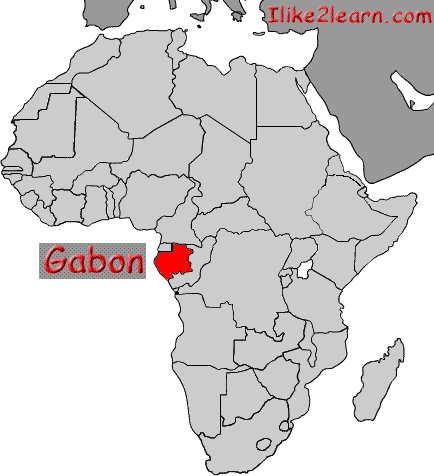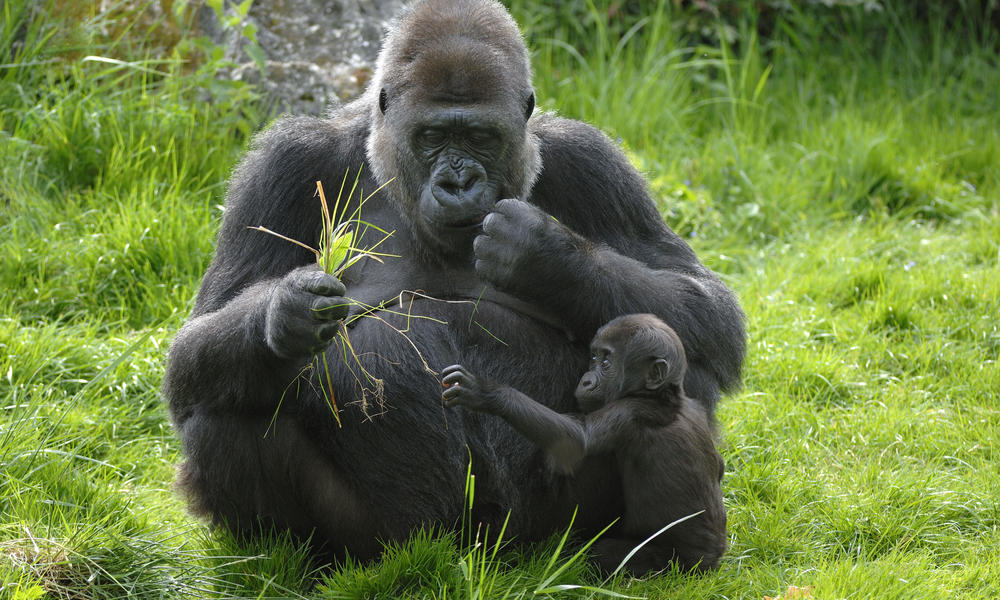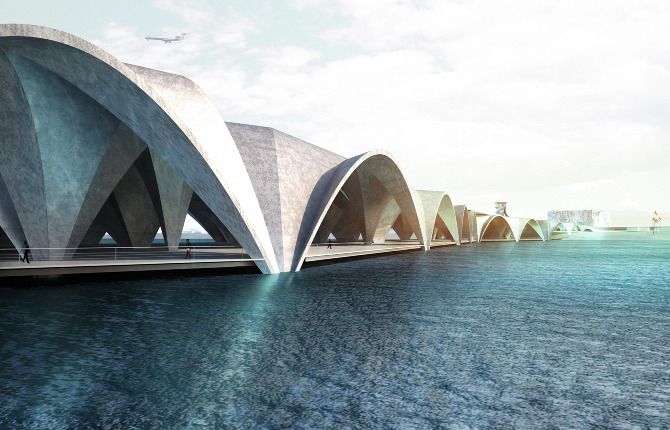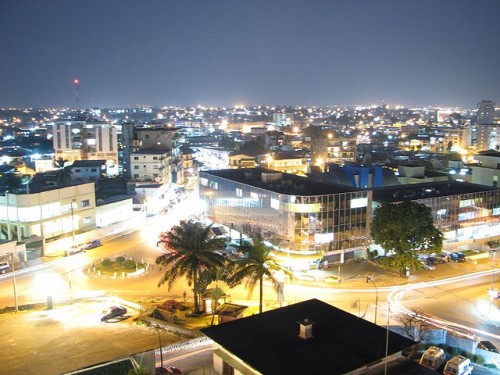I know close to nothing about this country. This is, of
course, with the minor exception of where it’s located. And I admit that with utter
embarrassment. But that’s because unless something earth-shatteringly huge
happens, the US mainstream media doesn’t talk about it. But in my research –
which is still giving me slight troubles when it comes to finding a bread
recipe – I’ve found a lot of really cool things about Gabon.
The name Gabon comes from the Portuguese word gabão, which means “cloak.” It was named
because of the shape of an estuary of the Komo River near Libreville.
This West African country is bordered by Equatorial Guinea
and Cameroon to the north, Republic of the Congo to the east and south, and the
Atlantic Ocean to the west. The island country of São Tomé e Principe lies about
188 miles to the east. It’s also one of the few countries that the equator
passes through.
Gabon is 85% covered by rainforests. It also has coastal plains,
mountains, and savannas, allowing for a considerable variety of flora and
fauna. Gabon also has many karst regions (a karst is a type of landscape where
there is a lot of limestone, dolomite, and/or gypsum that slowly has
deteriorated over time, leaving it exposed). These karst regions created cave
systems, many of which haven’t been explored yet. Gabon’s climate is partly the
reason it is also home to 777 species of birds and 80% of Africa’s gorilla
population.
The French explorer Pierre Savorgnan de Brazza (the namesake
of the city of Brazzaville) was the first European to explore what is now known
as Gabon. Before this, the earliest people here were the Pygmies, followed by
the Bantu as they moved through this area. De Brazza founded the town Franceville, and later ran the
place as its governor when France officially occupied the area around 1885. It
wasn’t until 1910 when it became one of the five territories of what was called
French Equatorial Africa (along with Chad, what is now Central African
Republic, what is now the Republic of the Congo, and what is now part of
Cameroon). All of these areas gained their independence in 1960, electing their
first president the following year: Léon M’ba. He essentially shut down the
media and made demonstrations and freedom of expression illegal. He died six
years later, and his vice president Omar Bongo Ondimba succeeding him. He
changed the political scene in Gabon, initiating critical changes in Gabon that
led them to an array of reforms. He eventually was elected for six straight terms
until his death in 2009 from a cardiac arrest. His son Ali Bongo Ondimba took
his place a few months later.
The capital and largest city in Gabon, Libreville, lies on the northwestern coast of the country. The name, which is French for “Freetown,” was in reference to a Brazilian slave ship that was captured by the French Navy in 1849, and the slaves were subsequently freed. With a population of a little less than 800,000 people (about the size of Charlotte, North Carolina, US), it is home to the Omar Bongo University, many parks, museums, shopping, and entertainment. Libreville wasn’t declared the capital of Gabon until 1993.
Almost 70% of Gabon’s economy is based on oil. This makes
Gabon one of the countries with the highest GDP in Africa. However, there is
such income inequality, that much of this oil money hardly trickles down to the
actual people; about a third of the people live in poverty. The top 20% of the
people own 90% of the wealth. Before the discovery of oil, Gabon was known for
is logging industry, as well as their manganese mining (mostly for uses in
stainless steel and other alloy applications – the US nickel coin contains
manganese). Libreville is home to many shipbuilding industries, as well as the
exportation of raw materials (mostly wood, rubber, and cocoa).
The majority of Gabonese people claim to be Christian, both
Roman Catholic and Protestant. Other religions include Islam, animism, atheism,
and Bwiti (a spiritual practice by the Babongo, Mitsogo, and Fang peoples; it
uses elements of animism and ancestor worship, and worshipers often chew on a
type of tree bark that give them “visions” as part of ceremonies and rites).
Like other African countries, many people will practice their indigenous
believes alongside either Christianity or Islam.
 |
| "You cross the equator" -- check out this girl's blog. It's pretty cool: http://bindertales.travellerspoint.com/ |
Gabon has nearly forty different ethnic groups, and there
are as many different Bantu languages spoken. The most widely spoken of these
languages include Fang, Mbere, and Sira (or Eshira). Gabon uses the colonial
language French as the official language and lingua franca. French is used in
government and official documents and as the language of instruction in
schools. English is one of the most popular foreign languages studied in
schools.
One interesting thing I read about Gabon is that women are
encouraged to have children before marriage. Once a woman is married and has
kids, those kids then belong to the man. So, if they were to separate, she will
lose those children that were born after they were married, but she will get to
keep the children born prior to marriage. It’s an interesting take on the
marriage and kids debate. I’m not quite sure what to think about it yet. I’m
finding this to be an interesting country. Like those uncharted caves, I’m
hoping to delve into Gabon and discover something new.
Up next: holidays and celebrations







No comments:
Post a Comment